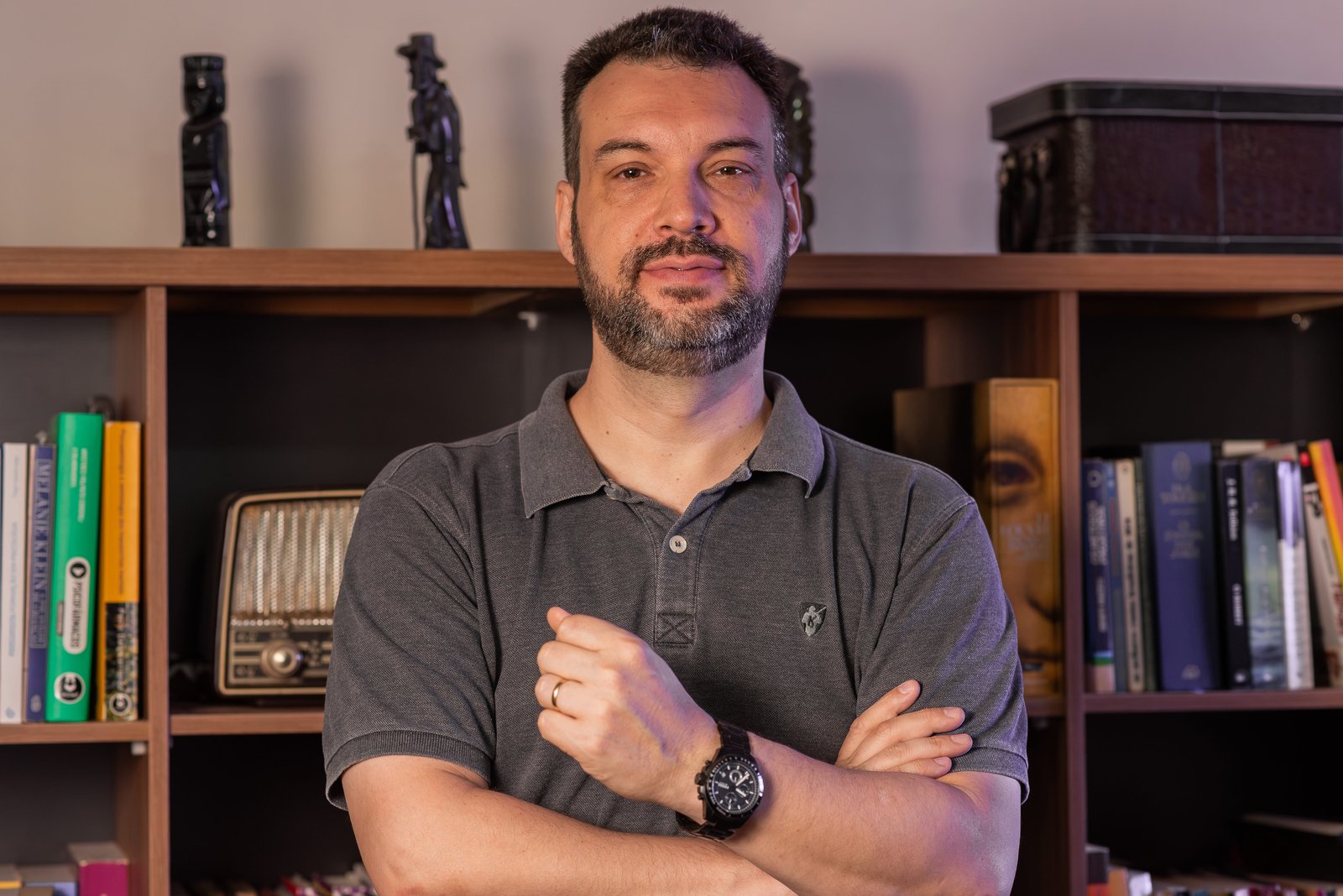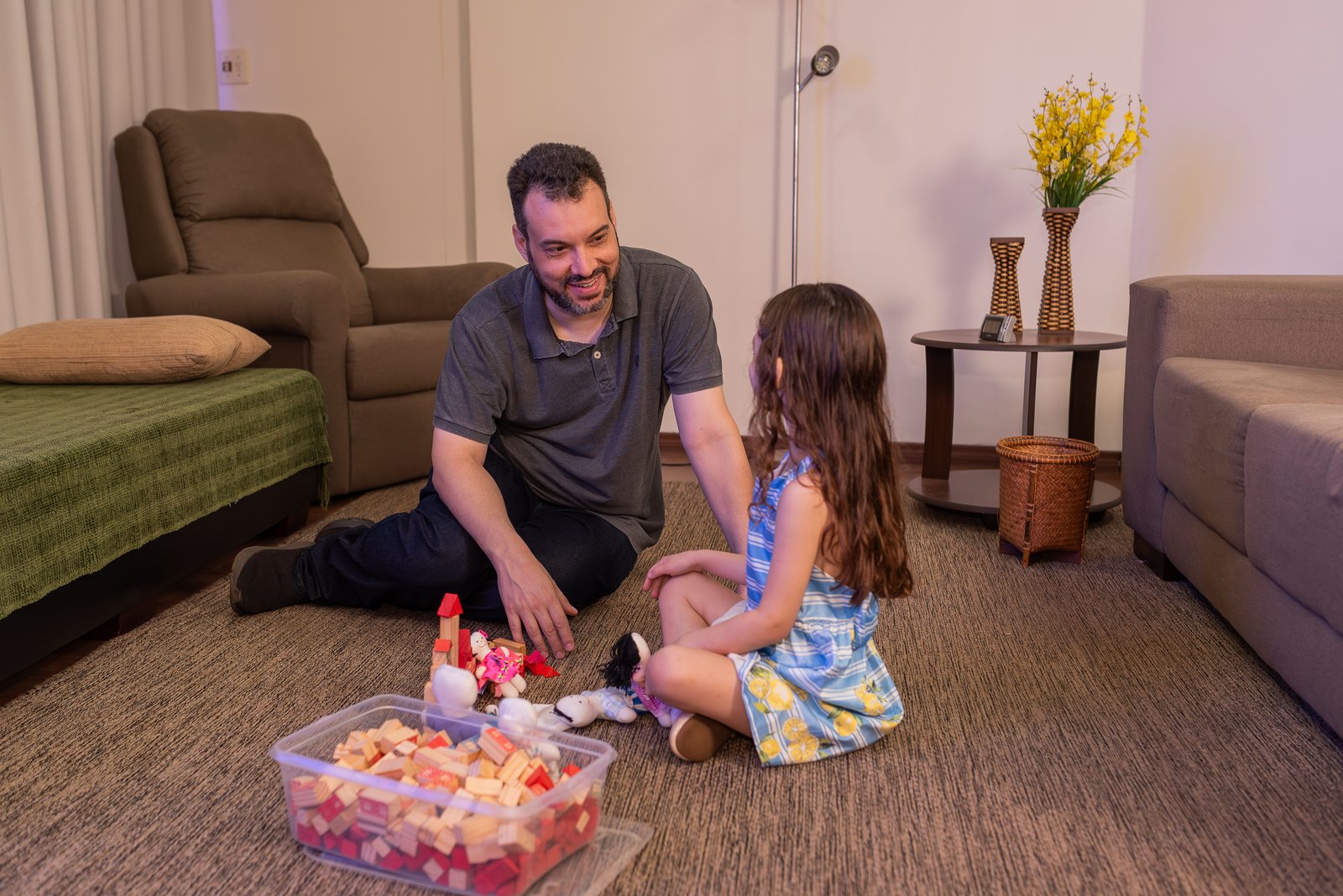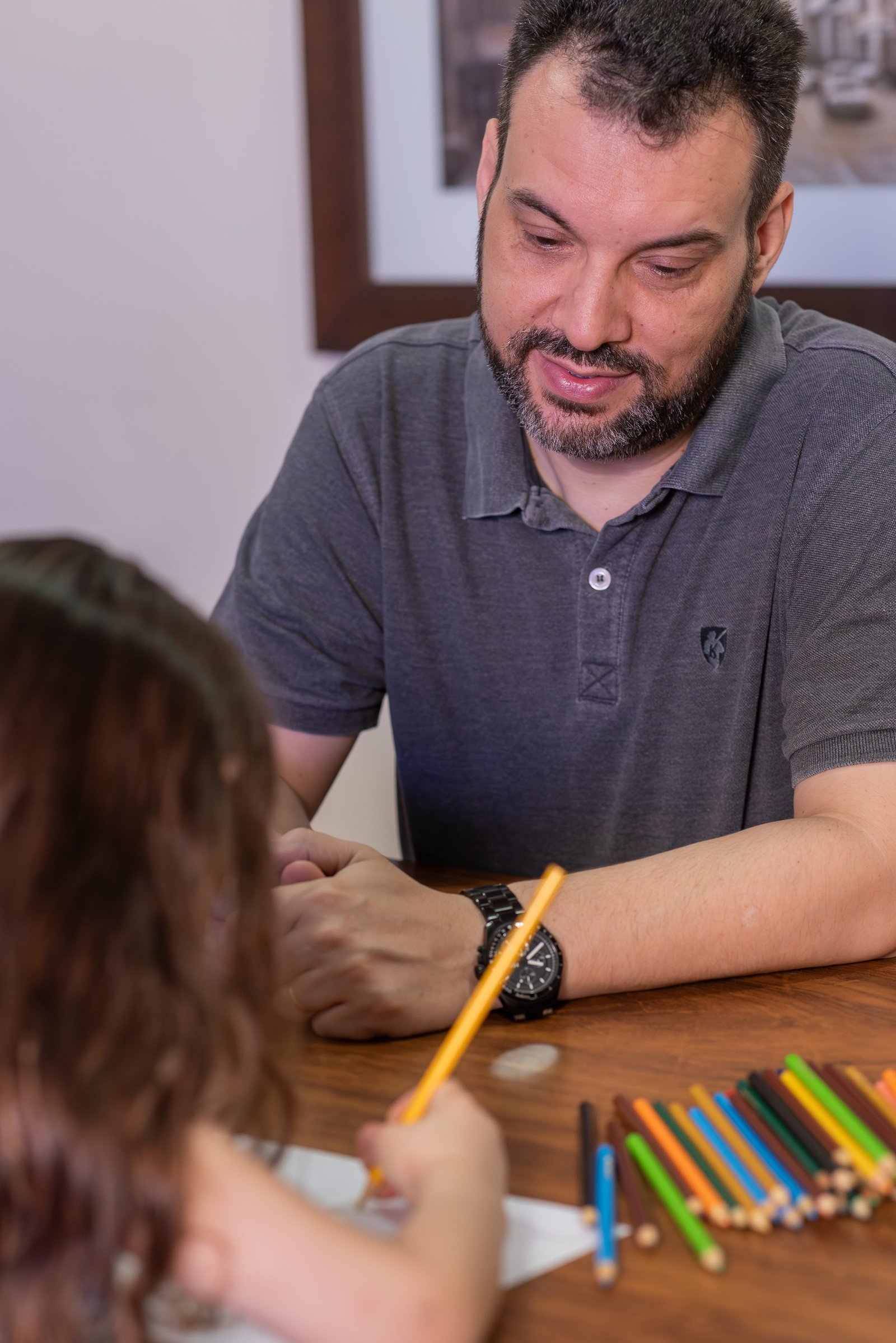Personal Development
Dr. Fábio Sagula
As a psychologist with a postdoctoral degree, I am dedicated to supporting your personal development. Browse the website, read articles, and discover how I can contribute to your well-being.

"Unlock your potential for a brighter and more balanced future."
Dr. Fábio SagulaServices
How can I guide you?

With over two decades of experience in Psychology and Psychoanalysis
I am here to support you on your journey of self-knowledge and life improvement. Offering clinical therapy since 2003 and working as a lecturer, my commitment is to provide a space to face challenges and discover new perspectives about yourself.
Learn More







Questions and Answers
FAQ | Doubts
The time required for psychotherapy to start showing results can vary greatly from person to person. In general, many patients begin to notice significant changes in their emotions and behaviors after a few sessions, usually between 4 to 6 weeks. However, for more complex or deep-rooted issues, a longer treatment period may be necessary, lasting months or even years. The therapeutic relationship and the approach used also influence this timeframe.
References:
- Cuijpers, P., Karyotaki, E., Weitz, E., Andersson, G., Hollon, S. D., & van Straten, A. (2016). The Effects of Psychotherapy for Depression on Suicide: A Meta-Analysis. Crisis: The Journal of Crisis Intervention and Suicide Prevention, 37(2), 109-116.
- Hofmann, S. G., Asnaani, A., Vonk, I. J. J., Sawyer, A. T., & Fang, A. (2012). The Efficacy of Cognitive Behavioral Therapy: A Review of Meta-analyses. Cognitive Therapy and Research, 36(5), 427-440.
If you are facing emotional difficulties such as anxiety, depression, stress, relationship problems, or any other issue affecting your well-being, therapy can be a valuable option. Research suggests that therapeutic intervention can be effective in promoting mental health and improving quality of life. Studies show that therapy helps reduce symptoms of depression and anxiety while enhancing life quality (Cuijpers et al., 2016; Hofmann et al., 2012). Speaking with a professional can help you better understand your emotions and find ways to improve, providing a space for reflection and personal growth.
References:
- Cuijpers, P., Karyotaki, E., Weitz, E., Andersson, G., Hollon, S. D., & van Straten, A. (2016). The Effects of Psychotherapy for Depression on Suicide: A Meta-Analysis. Crisis: The Journal of Crisis Intervention and Suicide Prevention, 37(2), 109-116.
- Hofmann, S. G., Asnaani, A., Vonk, I. J. J., Sawyer, A. T., & Fang, A. (2012). The Efficacy of Cognitive Behavioral Therapy: A Review of Meta-analyses. Cognitive Therapy and Research, 36(5), 427-440.
The number of therapy sessions needed varies based on individual needs. Some people may benefit from just a few sessions, while others may require a more extended treatment. Research indicates that treatment duration depends on the complexity of the issues and therapeutic goals (Lambert, 2013; Swift & Callahan, 2009). During the first session, the psychologist will discuss your expectations and suggest a plan tailored to your specific needs, considering symptom severity and therapy objectives.
References:
- Lambert, M. J. (2013). The Efficacy and Effectiveness of Psychotherapy. In The Handbook of Psychotherapy (pp. 1-20). New York: Wiley.
- Swift, J. K., & Callahan, J. L. (2009). The Impact of Client Treatment Preferences on Outcome: A Meta-Analysis. Journal of Consulting and Clinical Psychology, 77(3), 427-434.
The delay in seeing results in psychotherapy can be attributed to various factors, including the severity of the issues, personal history, therapeutic relationship quality, and the therapist’s approach. Moreover, each individual processes emotions at their own pace, and some may take longer to open up and address deeper issues. It is crucial to be patient and maintain open communication with the therapist regarding expectations and progress.
References:
- Santos, R. (2020). "Factors Influencing Psychotherapy Effectiveness." Psychology: Theory and Practice, 22(3), 67-75.
- Wampold, B. E. (2015). "The Great Psychotherapy Debate: The Evidence for What Makes Psychotherapy Work." Routledge.
- García, J. (2017). "Factors Affecting the Duration of Psychological Therapy." Psychology and Health, 27(2), 115-123.
Determining if psychotherapy is effective can be subjective, but some signs indicate progress. These include better emotional regulation, improved relationships, reduced symptoms of anxiety or depression, and greater clarity about thoughts and behaviors. It is also important to have an open dialogue with the therapist about your perceptions and feelings regarding therapy. Continuous feedback can help adjust the approach and ensure you are on the right path.
References:
- Almeida, M. (2019). "How to Assess Progress in Psychotherapy." Brazilian Journal of Psychology, 71(4), 345-356.
- Lambert, M. J. (2013). "The Efficacy and Effectiveness of Psychotherapy." In The Handbook of Psychotherapy, 2nd ed. (pp. 1-20).
- Martínez, P. (2018). "Indicators of Progress in Psychological Therapy." Psychology and Well-being, 12(1), 45-58.
During a therapy session, you will have the opportunity to discuss your concerns, feelings, and experiences. The psychologist will listen carefully and ask questions to help you explore your issues. The environment is confidential and welcoming, allowing you to feel comfortable expressing yourself. The therapeutic interaction is crucial for the healing process, as it fosters empathy and understanding, which are essential for developing an effective therapeutic relationship (Rogers, 1961; Norcross & Lambert, 2018).
References:
- Rogers, C. R. (1961). On Becoming a Person: A Therapist's View of Psychotherapy. Boston: Houghton Mifflin.
- Norcross, J. C., & Lambert, M. J. (2018). Psychotherapy Relationships That Work: A Contemporary Meta-Analysis.
Contact Me
How Can I Guide You?
JJ Carvalho Building
Av. Dr. Altino Arantes, 131 - Room 41, Fourth Floor
Downtown, Ourinhos - SP, 19900-030
Contact Form


